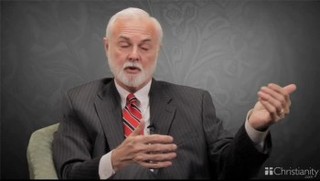
- Recent Translations
- All Translations
Luke 3:38
Share
Settings
Luke 3:38 Meaning and Commentary
Which was the son of Enos
( Genesis 5:9 Genesis 5:10 )
which was the son of Seth,
( Genesis 5:6 Genesis 5:7 )
which was the son of Adam
( Genesis 5:3 Genesis 5:4 )
which was the son of God:
not begotten, as all the rest were, by their immediate parents, but created by God, in a supernatural manner, out of the dust of the earth, and quickened with the breath of God: so Adam is, by the Jews F8 called, (Myhla Nb) , "the son of God": though this may be understood of Jesus; the son of Joseph, of Heli and so on to this clause, "the son of God"; being so as a divine person, to whom the human nature was united, and on that account so called; see ( Luke 1:35 ) Thus, as Matthew gives us the regal line of Christ, showing him to be heir to the throne of his father David, Luke gives the natural line of Christ; and as Matthew traces his genealogy down from Abraham, in a descending line, to Joseph, the husband of Mary, the mother of Jesus, Luke traces it upwards, in an ascending line, from Mary by Joseph, even up to Adam; to whom the Messiah was first promised, and who was a type of the second Adam, from whom he descended, though not by ordinary generation; nay, even to God himself: Christ, according to his divine nature, was the only begotten of the Father; and as to his human nature, had a body prepared by him, and in the fulness of time was God manifest in the flesh.
F8 Sepher Cosri, orat. 2. Sig. 14. fol. 68. 1.
Luke 3:38 In-Context
Videos for Luke 3:38
